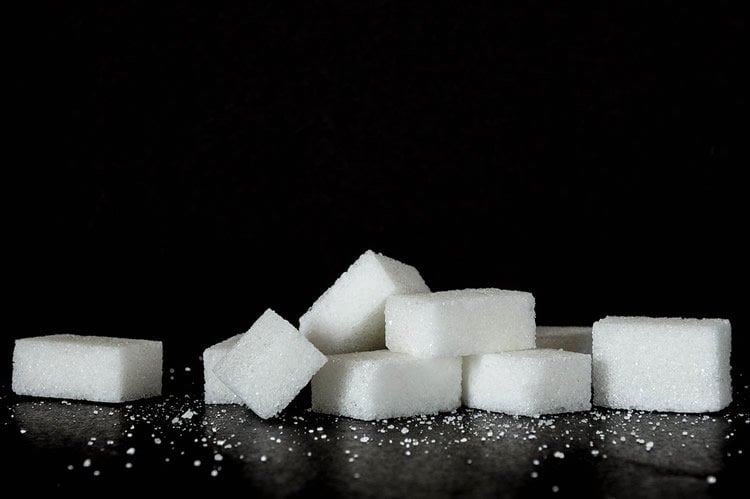Summary: Carbohydrate consumption from sugary drinks and snacks does not help to improve mood. The findings may help increase public awareness that the ‘sugar rush’ is a myth and help inform health policies to promote healthier alternatives.
Source: University of Warwick
Sugar does not improve mood and it can make people less alert and more tired after its consumption – according to a new study by the University of Warwick, Humboldt University of Berlin, and Lancaster University.
The research team set out to examine the myth of the ‘sugar rush’: can sugar really put you in a better mood? Using data collected from 31 published studies involving almost 1300 adults, Dr Konstantinos Mantantzis at Humboldt University of Berlin, Dr Sandra Sünram-Lea at Lancaster University, and Dr Friederike Schlaghecken and Professor Elizabeth Maylor in the University of Warwick’s Department of Psychology investigated the effect of sugar on various aspects of mood, including anger, alertness, depression, and fatigue.
They also considered how factors such as the quantity and type of sugar consumed might affect mood, and whether engaging in demanding mental and physical activities made any difference.
The researchers found that :
- sugar consumption has virtually no effect on mood, regardless of how much sugar is consumed or whether people engage in demanding activities after taking it.
- people who consumed sugar felt more tired and less alert than those who had not.
- the idea of a ‘sugar rush’ is a myth without any truth behind it.

Professor Elizabeth Maylor, from the University of Warwick, commented: “We hope that our findings will go a long way to dispel the myth of the ‘sugar rush’ and inform public health policies to decrease sugar consumption.”
Dr Konstantinos Mantantzis, from Humboldt University of Berlin, who led the study, said: “The idea that sugar can improve mood has been widely influential in popular culture, so much so that people all over the world consume sugary drinks to become more alert or combat fatigue.
“Our findings very clearly indicate that such claims are not substantiated – if anything, sugar will probably make you feel worse.”
Dr Sandra Sünram-Lea added: “The rise in obesity, diabetes and metabolic syndrome in recent years highlights the need for evidence-based dietary strategies to promote healthy lifestyle across the lifespan. Our findings indicate that sugary drinks or snacks do not provide a quick ‘fuel refill’ to make us feel more alert.”
Source:
University of Warwick
Media Contacts:
Alice Scott – University of Warwick
Image Source:
The image is in the public domain.
Original Research: Closed access
“Sugar Rush or Sugar Crash? A Meta-Analysis of Carbohydrate Effects on Mood”
Neuroscience & Biobehavioral Reviews. Konstantinos Mantantzis, Friederike Schlaghecken, Sandra I. Sünram-Lea, Elizabeth A. Maylor doi:10.1016/j.neubiorev.2019.03.016
Abstract
Sugar Rush or Sugar Crash? A Meta-Analysis of Carbohydrate Effects on Mood
The effect of carbohydrate (CHO) consumption on mood is much debated, with researchers reporting both mood improvements and decrements following CHO ingestion. As global consumption of sugar-sweetened products has sharply increased in recent years, examining the validity of claims of an association between CHOs and mood is of high importance. We conducted a systematic review and meta-analysis to evaluate the relationship between acute CHO ingestion and mood. We examined the time-course of CHO-mood interactions and considered the role of moderator variables potentially affecting the CHO-mood relationship. Analysis of 176 effect sizes (31 studies, 1259 participants) revealed no positive effect of CHOs on any aspect of mood at any time-point following their consumption. However, CHO administration was associated with higher levels of fatigue and less alertness compared with placebo within the first hour post-ingestion. These findings challenge the idea that CHOs can improve mood, and might be used to increase the public’s awareness that the ‘sugar rush’ is a myth, inform health policies to decrease sugar consumption, and promote healthier alternatives.






